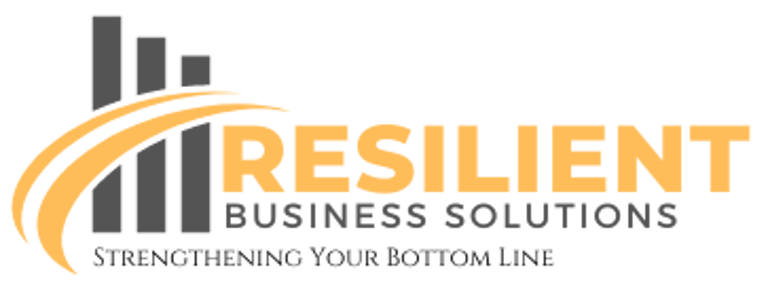How to Prepare for a Business Audit: A Step-by-Step Guide
Discover a comprehensive step-by-step guide to preparing for a business audit, and learn how professional bookkeeping services can simplify the process and ensure a successful outcome.
4 min read


Understanding the Audit Process
A business audit serves as a comprehensive examination of a company's financial health, compliance measures, and overall operational integrity. This rigorous process aims to ensure transparency, adherence to regulatory standards, and reliability of financial records. Conducted either internally or by an external entity, audits play an integral role in maintaining corporate accountability, detecting discrepancies, and fostering long-term financial stability.
Various types of audits exist, each tailored for specific purposes. Internal audits, typically conducted by a company’s own staff or internal auditing department, focus on evaluating internal controls and risk management processes. These audits help identify inefficiencies and potential areas of improvement. Conversely, external audits are performed by independent auditors who objectively assess a company’s financial statements and compliance with generally accepted accounting principles (GAAP). Additionally, tax audits review a company’s tax returns and ensure that the reported financial information aligns with tax regulations.
The audit process unfolds through several key stages. It begins with planning, during which the auditor gathers preliminary information, understands the business environment, and identifies areas of risk. The examining phase follows, involving thorough scrutiny of financial statements, transactions, and internal procedures. Subsequently, the auditor conducts testing to verify the accuracy and completeness of records. Finally, the reporting phase concludes the process with an in-depth audit report that outlines findings, highlights discrepancies, and provides recommendations for improvement.
Audits are crucial for multiple reasons. They enhance business transparency, thereby boosting stakeholder confidence and attracting potential investors. Furthermore, regulatory compliance is ensured, reducing the risk of legal sanctions and financial penalties. Regular audits also aid in detecting fraudulent activities or internal mismanagement, thus safeguarding the organization’s assets and reputation.
Several factors may trigger an audit, including irregularities in financial statements, failure to adhere to industry regulations, or even random selection processes by tax authorities. Understanding these common triggers underscores the importance of meticulous record-keeping and sound financial practices. By grasping the audit process and its significance, businesses can better prepare themselves, ultimately fortifying their financial health and operational resilience.
Steps to Prepare for a Business Audit
Preparing for a business audit requires meticulous attention to detail and a structured approach. The first step is organizing and reviewing your financial records. This involves gathering all relevant financial documents, such as receipts, invoices, bank statements, and previous tax filings. Ensuring that all transactions are correctly logged and categorized in your accounting software is crucial. This procedure not only streamlines the auditing process but also helps in promptly identifying any discrepancies that need addressing.
Next, verify the accuracy of your financial statements. These include the balance sheet, income statement, and cash flow statement. Manually reconcile accounts by cross-referencing your transactions against these statements, ensuring figures are precise and consistent. Pay special attention to high-risk areas such as expense reports, payroll records, and inventory logs, which are often scrutinized during audits.
Documentation plays a critical role in a smooth audit process. Keep comprehensive records of all transactions and policies. This includes maintaining updated copies of policy documents, contracts, and compliance records. Every financial entry should have corresponding documentation supporting its legitimacy and purpose. Well-documented records not only facilitate the auditor's work but also reflect your business's commitment to compliance and transparency.
Establishing a clear timeline for preparation is another vital element. Allocate sufficient time to thoroughly review and organize materials in stages, ensuring nothing is overlooked. Scheduling pre-audit meetings with relevant team members, including accounting personnel, department heads, and external advisors, aids in coordinating efforts and addressing any potential issues early on. These meetings are also pivotal for assigning responsibilities and ensuring everyone is on the same page regarding what to expect during the audit.
By following these structured steps, you can significantly reduce the stress associated with business audits and ensure a more efficient and straightforward review process. Comprehensive preparation not only helps pass the audit with ease but also enhances your business’s financial integrity and operational clarity.
Leveraging Professional Bookkeeping Services
Utilizing professional bookkeeping services can be a strategic move for businesses preparing for an audit. These services bring a high level of expertise and precision that can significantly streamline the audit process, alleviating much of the stress and uncertainty that often accompany financial reviews. By outsourcing bookkeeping tasks, businesses gain access to specialized knowledge that ensures all financial records are kept up-to-date and in strict compliance with regulatory standards.
One of the primary advantages of outsourced bookkeeping is the accuracy it affords. Professional bookkeepers are well-versed in managing financial records systematically, catching discrepancies early, and maintaining impeccable documentation. This meticulous attention to detail reduces the risk of errors and inconsistencies that could trigger red flags during an audit. Moreover, these services free up valuable time for business owners and managers, allowing them to focus on core operations without worrying about the intricacies of financial record-keeping.
Expertise and compliance knowledge are other significant benefits of professional bookkeeping. Experienced bookkeepers stay abreast of the latest regulations and industry standards, ensuring that a business's financial practices comply with current laws. This proactive approach reduces the likelihood of compliance issues arising during an audit, which can otherwise lead to penalties or fines.
Routine financial tasks, such as maintaining ledgers, reconciling accounts, and preparing financial statements, are managed efficiently by professional bookkeepers. This proactive recordkeeping is crucial for audit preparedness. For example, case studies have shown that businesses employing ongoing bookkeeping support have navigated audits more smoothly. One such business, a mid-sized manufacturing company, faced repeated audit challenges due to inconsistent records. After engaging a professional bookkeeping service, they saw a dramatic improvement in their audit experiences, citing significant reductions in errors and faster audit resolutions.
When selecting a bookkeeping service, businesses should look for key features such as industry experience, robust software tools, and a track record of reliable service. Ongoing support from these professionals not only helps during an audit but also creates a solid foundation for future financial stability. This continuous partnership ensures that all financial data is accurate and readily accessible, leading to smoother, less stressful audits.
When You Are Ready
Ready to simplify your business finances? At Resilient Business Solutions, we’re here to take the stress out of managing your books so you can focus on what you do best—growing your business. Whether you need help with bookkeeping, invoicing, or managing payables and receivables, we’ve got you covered. Contact us today to learn how we can support your business with reliable, expert financial services. Let’s build a resilient future together!
Strengthening Your Bottom Line
Customized financial support to empower your business success.
Get Our Free 50+ Page Small Business Success Guide Now
© 2024. All rights reserved.
